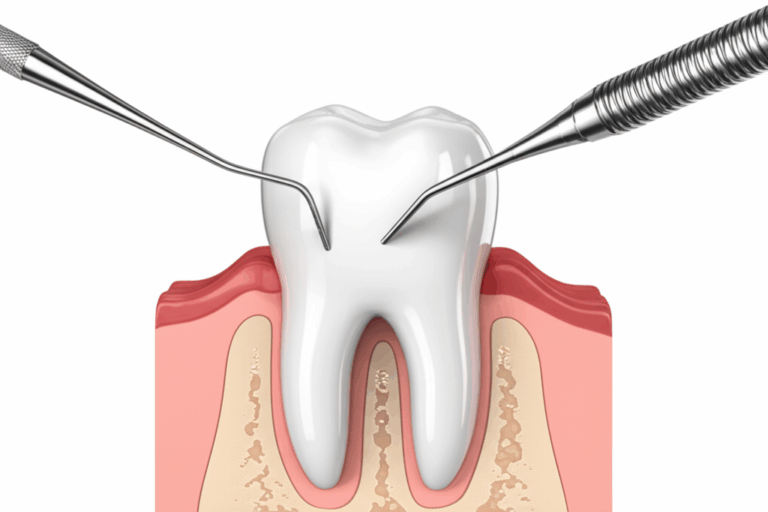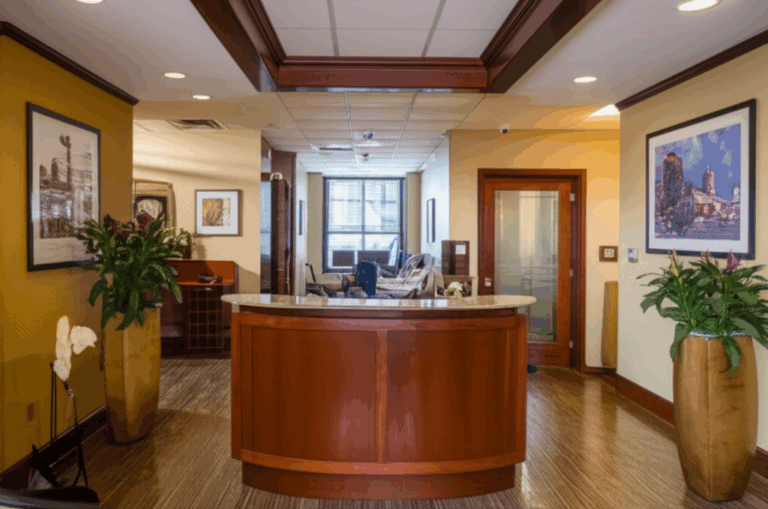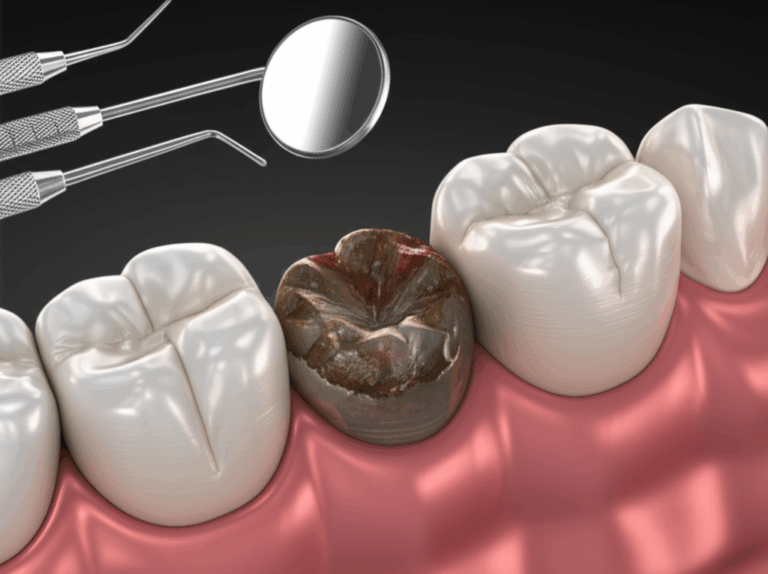
How Long Does It Take to Become a Dentist in Australia? (2024 Guide)
Becoming a dentist in Australia is a big goal, but do you know how long it takes? In this easy-to-read guide, I’ll walk you step-by-step through every part of the journey—from finishing high school to finally working with real patients. If you care about smiles, science, or just want a good job, this article is for you. I’ll use real stories, simple numbers, and a little bit of humor to help you understand the real timeline. By the end, you’ll have a straight answer and know if this path is the right one for you.
Table of Contents
1. The Short Answer: How Many Years Does It Take?
When someone asks, “How long to become a dentist in Australia?” I give them the quick answer: 5 to 8 years—sometimes even more. The main reason for the difference is which study path you pick.
Let’s break it down. If you go to uni straight from high school, you can finish in as little as five years. If you need to do another degree first—like a Bachelor’s in Science or Health—you’ll add three or more extra years. Each choice has its own steps, and I’ll explain both below.
2. What’s the Fastest Route: Can I Go Straight from High School?
The fastest way to start your dental career is the undergraduate pathway, also called “direct entry.” Here’s how it works:
- After high school, you apply for a dental degree, like the Bachelor of Dental Surgery (BDS) or a combined degree.
- You usually need really high marks. In Australia, this means a top ATAR score (think 95+), a strong UCAT ANZ test result, and sometimes an interview.
- Common universities for this way include the University of Adelaide, University of Queensland, Charles Sturt University, Griffith University, James Cook University, La Trobe, and University of Western Australia.
How long does this way take? Most undergraduate dentistry degrees are five years. Some joint or mixed degrees, like the Bachelor of Oral Health + Master of Dentistry, can take up to seven years. But if all goes right, you could go from high school graduate to qualified dentist in just five years. That’s less than you might think!
3. Graduate Entry: Do I Need a University Degree First?
If you don’t get into dental school straight after high school, don’t worry. Many students take the graduate entry pathway, and lots of dentists in Australia have gone this way.
- First, you finish a bachelor’s degree—this can be in science, health, or pretty much any subject, though things like chemistry and biology help a lot.
- You need a high uni score (GPA or WAM) and a good result in the GAMSAT (Graduate Medical Admissions test). Some programs take UCAT ANZ too.
- After you finish your degree, you apply for a Doctor of Dental Medicine (DMD) or Doctor of Dental Surgery (DDS) program.
- Top universities for graduate dental programs include the University of Melbourne, University of Sydney, University of Western Australia, and Griffith University.
How long does this way take? The DMD/DDS program itself is four years. If you add three years for your first bachelor’s degree, you’re looking at seven to eight years—and a few more years if you took any breaks along the way.
4. What Degrees Do Dentists Need in Australia?
Dentists in Australia must finish courses approved by the Australian Dental Council (ADC). Here are the main degrees:
Bachelor of Dental Surgery (BDS)
- How long: 5 years (undergraduate)
- Offered by: Adelaide, Queensland, James Cook, La Trobe, Charles Sturt, UWA (some programs)
- What you learn: Basic and advanced dental science, hands-on skills, patient care
Doctor of Dental Medicine (DMD) / Doctor of Dental Surgery (DDS)
- How long: 4 years (graduate)
- Offered by: Melbourne, Sydney, UWA, Griffith
- What you learn: Builds on earlier studies with advanced practice, clinical work, and research
Combined Degrees
- Example: Bachelor of Oral Health + Master of Dentistry (La Trobe)
- How long: 5-7 years total
- Who does this? Students who want a joined program or didn’t get direct entry after high school
No matter which degree you pick, you’ll do classes, lab work, and real training with patients.
Table: Comparing Dental Study Pathways in Australia
| Pathway Type | Degree Awarded | Years to Finish | Entry Needs | Example Universities |
|---|---|---|---|---|
| Undergraduate | BDS / BDentSci | 5–7 | High ATAR, UCAT, Interview | Adelaide, UQ, CSU, JCU, Griffith, La Trobe, UWA |
| Graduate Entry | DMD / DDS | 7–8 (w/ bachelor’s) | Bachelor’s, WAM/GPA, GAMSAT, Interview | Melbourne, Sydney, UWA, Griffith |
| Specialist | DClinDent / MDS | 3–4 extra | Dental reg., experience, Interview | Melbourne, Sydney, UQ, Adelaide |
5. What Happens After Graduation: Registration and Practice
Finishing your dental degree is a big step, but you’re not done yet! To work as a dentist in Australia, you need to get registered.
- Australian Dental Council (ADC) Approval: Your course must be approved by the ADC. Luckily, all the big Australian unis have this.
- AHPRA and Dental Board of Australia Registration: After school, you apply to the Australian Health Practitioner Regulation Agency (AHPRA) and the Dental Board of Australia (DBA) for registration as a general dentist.
- There’s usually no internship year like for doctors. Most finish school, register, and can start seeing patients right away.
Tip: If you studied overseas, you’ll need to pass more exams and tests from the ADC before you can register.
6. What Makes the Timeline Longer for Some Students?
You might ask, “Can I become a dentist faster?” Well, sometimes things slow you down:
- Entry needs: If your ATAR or test scores don’t make the cut, you might spend a year or two trying again.
- Course plan: Some degrees are longer (combined or part-time), while some unis offer a slightly shorter way.
- Breaks: Maybe you take a year off, get sick, or have to repeat a class.
- Specialist study: If you want to be a specialist (like orthodontist or oral surgeon), you’ll need extra years for study and clinic work.
- Recognition of past study: Not common, but sometimes credits from overseas or other degrees shorten your time.
- Part-time study: Dental school is almost always full-time because of all the practical training.
7. Can I Become a Dentist Faster by Going Part-Time or Taking Shortcuts?
Dentistry is a hands-on job—you can’t really rush it. Most dental degrees in Australia won’t let you study part-time. You need lots of hours with real patients, and the ADC makes sure every new dentist is ready.
If you hear about “fast” courses, double-check with the uni and the Dental Board of Australia. Most won’t be much quicker than regular ones.
But, you can save time by planning well, keeping your marks up, and applying to unis as soon as you can.
8. How Long Does It Take to Become a Specialist Dentist?
If general dentistry isn’t enough for you and you want to become a specialist—like an orthodontist, oral surgeon, or periodontist—get ready for a longer trip.
- First, finish your basic course (BDS, DMD, or DDS).
- Next, work at least two years as a general dentist.
- When ready, apply for a specialist program like the Doctor of Clinical Dentistry (DClinDent) or Master of Dental Surgery (MDS). These are another three to four years.
- Specialist courses include research, advanced training, and more exams.
All together: Most specialists will study and work 10-15 years before reaching their dream.
9. Real-Life Examples: How Students Achieve Their Dreams
Let’s meet three typical students:
Student A: Emma gets a 98 ATAR. After a great UCAT ANZ score and a tough interview, she gets into the Bachelor of Dental Surgery at University of Adelaide. She studies for five years, graduates at 23, registers with AHPRA, and starts working right away. Total time: 5 years.
Student B: Adam finishes high school but doesn’t get into dentistry. He does a Bachelor of Science for three years, scores well on GAMSAT, then gets into the DMD at University of Sydney. Four years later, he graduates, registers, and starts as a dentist at 25. Total time: 7 years.
Student C: Priya does like Student A, becomes a dentist, then works three years in Melbourne. She gets into a Doctor of Clinical Dentistry in Orthodontics. Three more years, and she’s a specialist at 31. Total time: 11 years.
For a closer look at dental work, see our [dental practical guide]—it breaks down careers, options, and daily tasks.
10. How Much Does Dental School Cost and What’s the Payoff?
Dental school isn’t just long—it can cost a lot. Here’s some simple info:
Tuition and Fees
- Australian students: On a government-supported place, pay about AUD $10,000 to $15,000+ per year.
- Full-fee places: Can be up to AUD $40,000+ per year.
- International students: Even more, up to AUD $100,000+ for the lot.
- Loans and scholarships can help, but plan ahead.
Pay
- New grads: General dentists start around $80,000+ a year.
- Specialists: Orthodontists, oral surgeons, and other specialists can make much more.
- Job security: Australia needs dentists, especially outside big cities.
Real-World Skills
While you study, you’ll also learn new dental tech. Some schools work with top labs—like [digital dental labs]—to give you real experience with the best equipment and with dental ceramics.
11. Frequently Asked Questions (FAQs)
Q: What’s the fastest way to become a dentist in Australia?
A: Direct undergraduate entry (like a BDS) straight after high school, which usually takes 5 years.
Q: Do I need a medicine degree before studying dentistry?
A: No, but for the graduate way you’ll need a bachelor’s degree—health, science, or even arts.
Q: Can I start working after my degree?
A: Yes! As soon as you register with AHPRA, you can start as a general dentist.
Q: Is a Bachelor of Oral Health the same as being a dentist?
A: No—it lets you work as a dental hygienist or oral health worker but not as a dentist.
Q: Can I work as a dentist in Australia with an overseas degree?
A: Maybe, but you’ll need to pass ADC exams and checks, and it can take extra years.
Q: What’s the difference between DDS and DMD?
A: Both are professional dental degrees. In Australia, they work the same for general practice.
Q: How do I become an orthodontist or oral surgeon?
A: Finish your dental degree, get AHPRA registration, work for two years, then do a 3-4 year specialist course like the Doctor of Clinical Dentistry.
12. Key Points to Remember
- Becoming a dentist in Australia takes time—most people finish after 5 to 8 years.
- There are two main study paths: an undergraduate way (from high school) and a graduate way (after another degree).
- All dental degrees must be ADC-approved and let you get AHPRA registration.
- Specialist dentists, like orthodontists, need extra years of practice plus another degree.
- Dental school isn’t cheap, but dentists earn good money and there’s lots of jobs.
- Good planning and study habits help you become a dentist faster.
- You can’t speed through by going part-time, but schools with practical training—sometimes working with a great [crown and bridge lab], for example—will give you useful experience.
- If you like the art side of dentistry, [dental ceramics labs] and the newest [3d dental labs] can offer more chances in the field.
Want more details on dental careers, patient care, or paths for students from overseas? See our other guides for help at every step.
Reviewed by Dr. Joe Dental, BDS, ADC Accredited Dentist, Sydney
(Checked by experienced dentists and teachers in Australia for truth and clarity.)
Most Important Things to Remember
- To be a dentist in Australia usually takes 5 to 8 years.
- There are two main ways: undergraduate (5-7 years) and graduate (7-8 years).
- After your degree, register with AHPRA to start.
- Specialist dentists need another 3-4 years of school plus work.
- Good marks and planning will help you.
- Costs are high, but jobs and pay are strong.
- Learning new dental tech—like what’s in digital or ceramic dental labs—will help set you up for the future.
Ready to begin? The road is long, but the rewards really are worth it. Good luck, future dentists!








